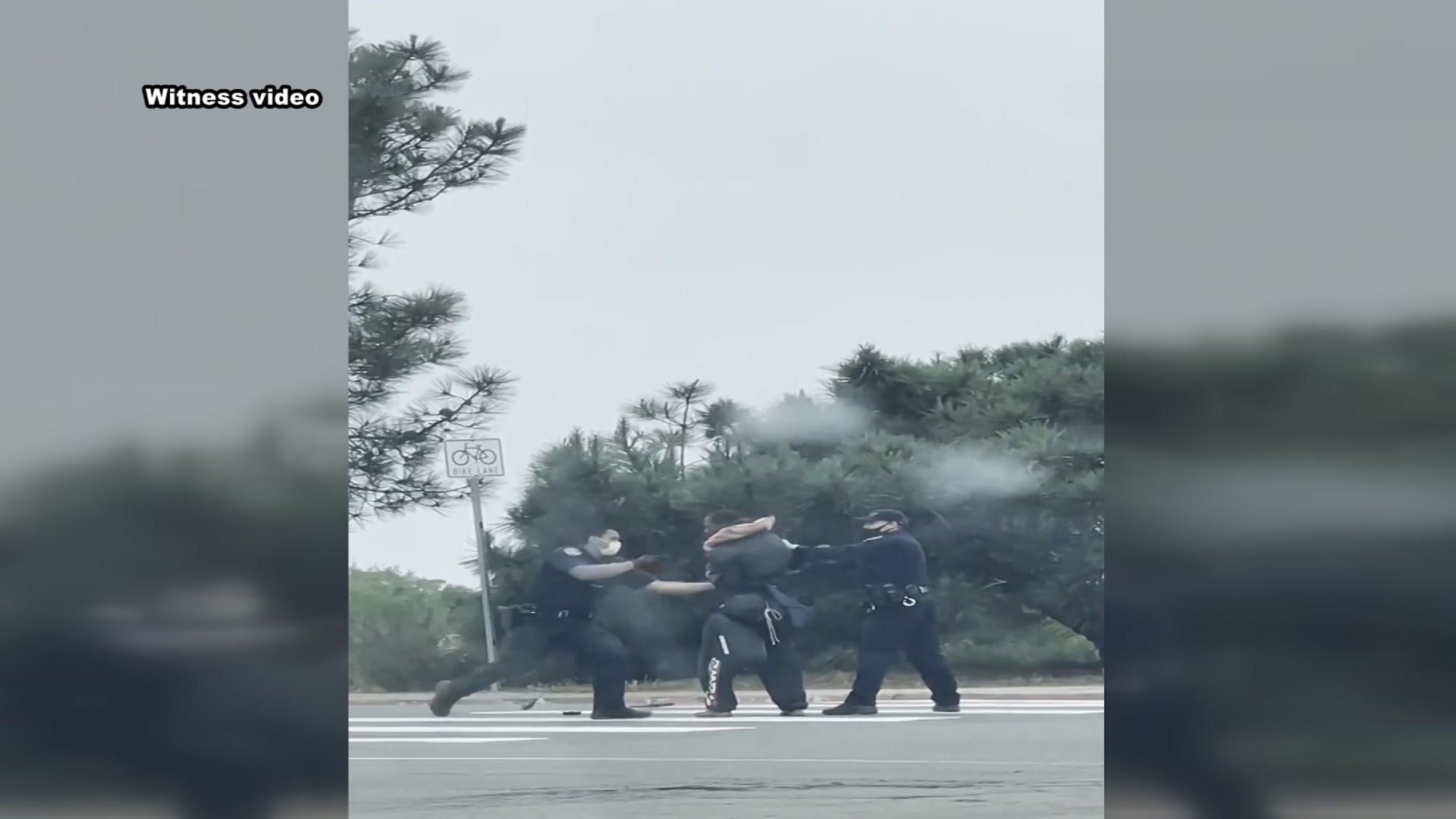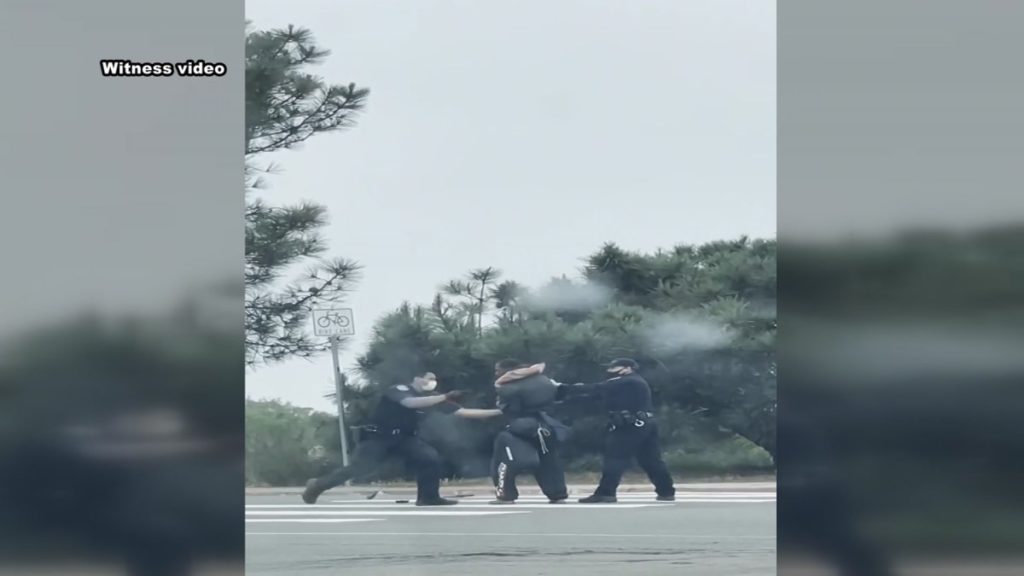
The San Diego City Attorney’s Office announced Friday that it will not pursue criminal charges against a homeless Black man who was tackled, repeatedly punched and arrested by San Diego police officers in La Jolla last month after he was accused of public urination.
Jesse Evans’ arrest on May 12 sparked public outrage and accusations of excessive force when recordings of the rough arrest, which were captured by a bystander, went viral.
Police said Evans, 34, was initially contacted by officers for urinating in public. Body camera footage released by the police department showed officers approaching Evans, who walked away from them. Later, the officers confronted him in an intersection, at which point he was tackled and arrested.
The witness’ cellphone video showed most of the fracas, during which one of the patrolmen hit Evans in the face twice, and the other punched his leg several times.
An internal affairs investigation has been launched by the San Diego Police Department after two officers were captured on camera repeatedly striking a man just after he was taken down in an effort to detain him in the middle of a major intersection in La Jolla.
Police have said that an internal review is underway.
In a statement issued by her office, City Attorney Mara Elliott said, “Our city’s resources could better be used providing public restrooms.”
Local activist Rev. Shane Harris, president of the People’s Association of Justice Advocates, called the decision “a victory.”
Harris said, “Mr. Evans should not have been punched out by our public servants. Instead, he should have been offered to be taken to a nearby restroom, or a social worker should have been on the scene. Mr. Evans should not have been charged with a crime because body-worn camera footage shows he never committed one.”
Harris also said the situation highlighted the “imbalance of resources” funneled toward police.
“Reimagining policing means we need to invest in more wraparound resources to deal with the mentally challenged or the unsheltered,” Harris said.
